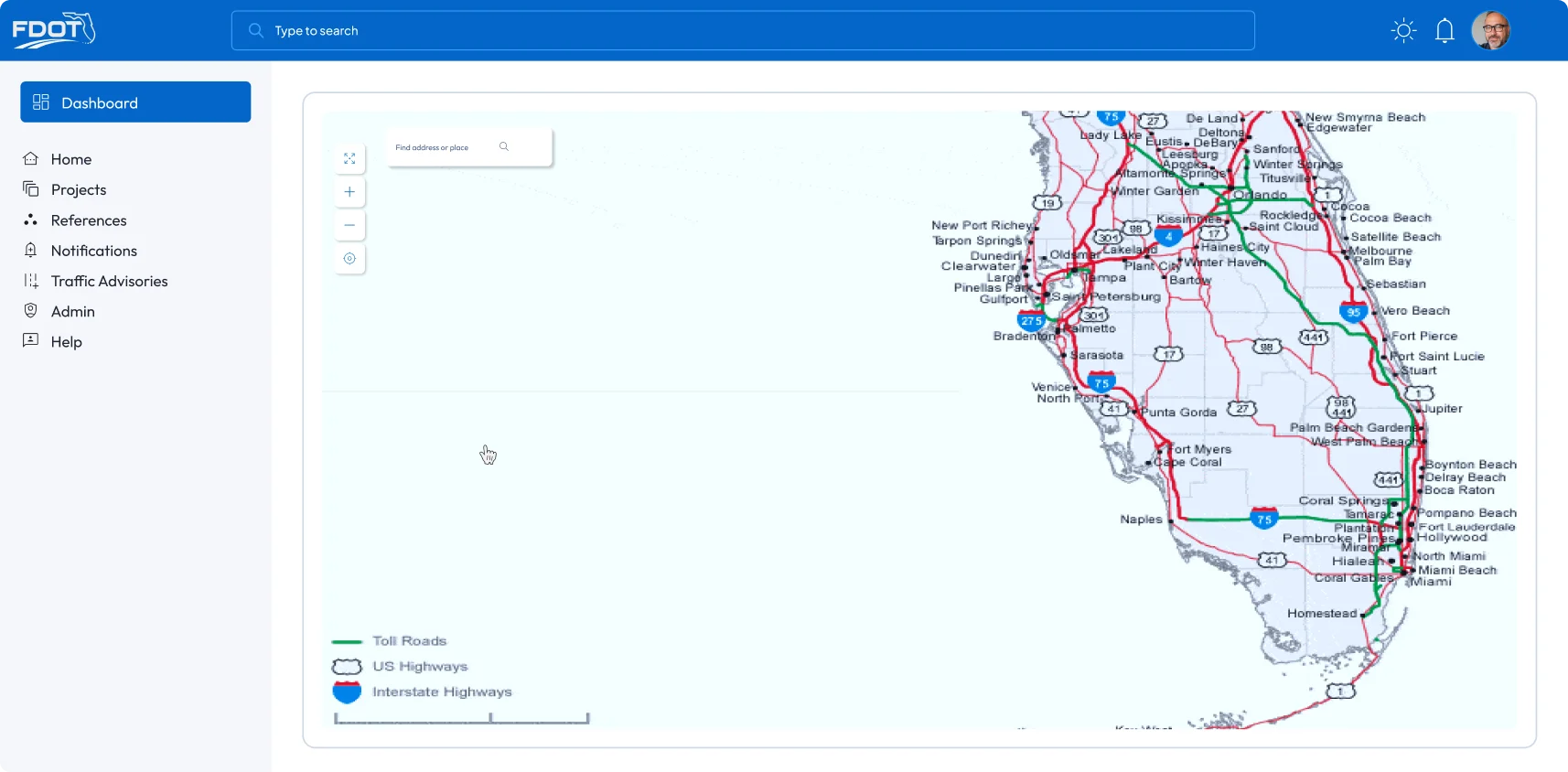Case Studies
Florida’s Turnpike Enterprise (FTE) – NExUS: Negotiation of Units & Staff Hours
FTE partnered with EPIC to replace spreadsheet-based Units & Hours negotiations with NExUS—an analytics-ready, standardized, modular web platform scalable across FDOT districts.
Introduction
Florida’s Turnpike Enterprise (FTE) set out to streamline its consultant Units & Hours negotiations—the inputs that underpin fee agreements on capital projects.
EPIC was engaged to conduct a comprehensive needs assessment and recommend a modern, enterprise web solution that would replace a spreadsheet‑driven process with a standardized, analytics‑ready platform. The result was NExUS (Negotiation of Units & Staff Hours): a modular, scalable application blueprint designed for FTE and readily adaptable across FDOT districts.
Challenge
FTE’s existing negotiation workflow relied on complex, project‑type spreadsheet templates distributed by FDOT Central Office and exchanged via email among Project Managers, Design Teams, GECs, consultants, and subconsultants. This created:
- Version control risks: Difficulty identifying the latest negotiated file, discrepancies between final scope and spreadsheet versions
- High coordination overhead: Numerous email threads; manual reconciliation to assemble final packets
- Limited data visibility: Historical estimates were hard to analyze; no unified repository for units/hours/comments
- Process inconsistency: Variations across project types and teams; ad‑hoc meeting/call workflows

Solution
EPIC led a 7‑week, stakeholder‑driven assessment (FTE, FDOT, GEC, consultants) and produced a complete roadmap to implement NExUS.
Analysis & Design
- AS‑IS capture & pain‑point synthesis across negotiation participants
- Wireframes for the NExUS application demonstrating negotiation workspaces and controls
- Requirements Traceability Matrix (RTM) tying stakeholder needs to functional capabilities
- Identification of related scope management needs for a future phase
NExUS Platform Recommendation (modular, scalable)
- Phase 1 (Approved & Implemented): Role‑based access for FTE/FDOT/GEC/consultants; template management; version control; centralized repository for negotiated Units, Hours, and Comments
- Phase 2: Analytics & metrics for negotiations; scope management capabilities
- Phase 3: Enhancements informed by Phase 1–2 usage and feedback
- Designed for FDOT reuse: Architecture and configuration structured so other districts can adopt with minimal changes.
Solution highlights
- Analysis & Design
- NExUS Platform Recommendation

Insights
50–70%
Fewer back‑and‑forth emails per negotiation (centralized workspace + notifications)
25–40%
Faster approval throughput
≥ 90%
Reduction in conflicting spreadsheet versions
Results
- Standardized process: Clear, repeatable negotiation workflow documented and implemented in NExUS Phase 1
- Lower risk, higher confidence: Controlled templates, version control, and full audit history reduce discrepancies and rework
- Operational agility: Faster packet assembly and approvals free Project Managers to oversee more work with less administrative burden
- Actionable analytics: Defined metrics and Phase‑2 plan enable enterprise‑level insights on units/hours and negotiation trends
- Scalable foundation: Modular design supports expansion to scope management and cross‑district adoption across FDOT
Polk County Utilities
EPIC conducted thorough needs analysis and process mapping, always eager to troubleshoot, provide solutions, and collaborate effectively with all stakeholders.
Seminole County Environmental Services Division
Our partnership with EPIC Engineering & Consulting Group has modernized Seminole County Environmental Services, improving efficiency, data integrity, and project workflows.
City of Orlando
EPIC has been a trusted partner in our digital transformation. With Simplify i3, we eliminated duplicate data, reduced spreadsheets, and streamlined operations in a cloud-based system.

Talk to an expert about your challenge today
contact us

